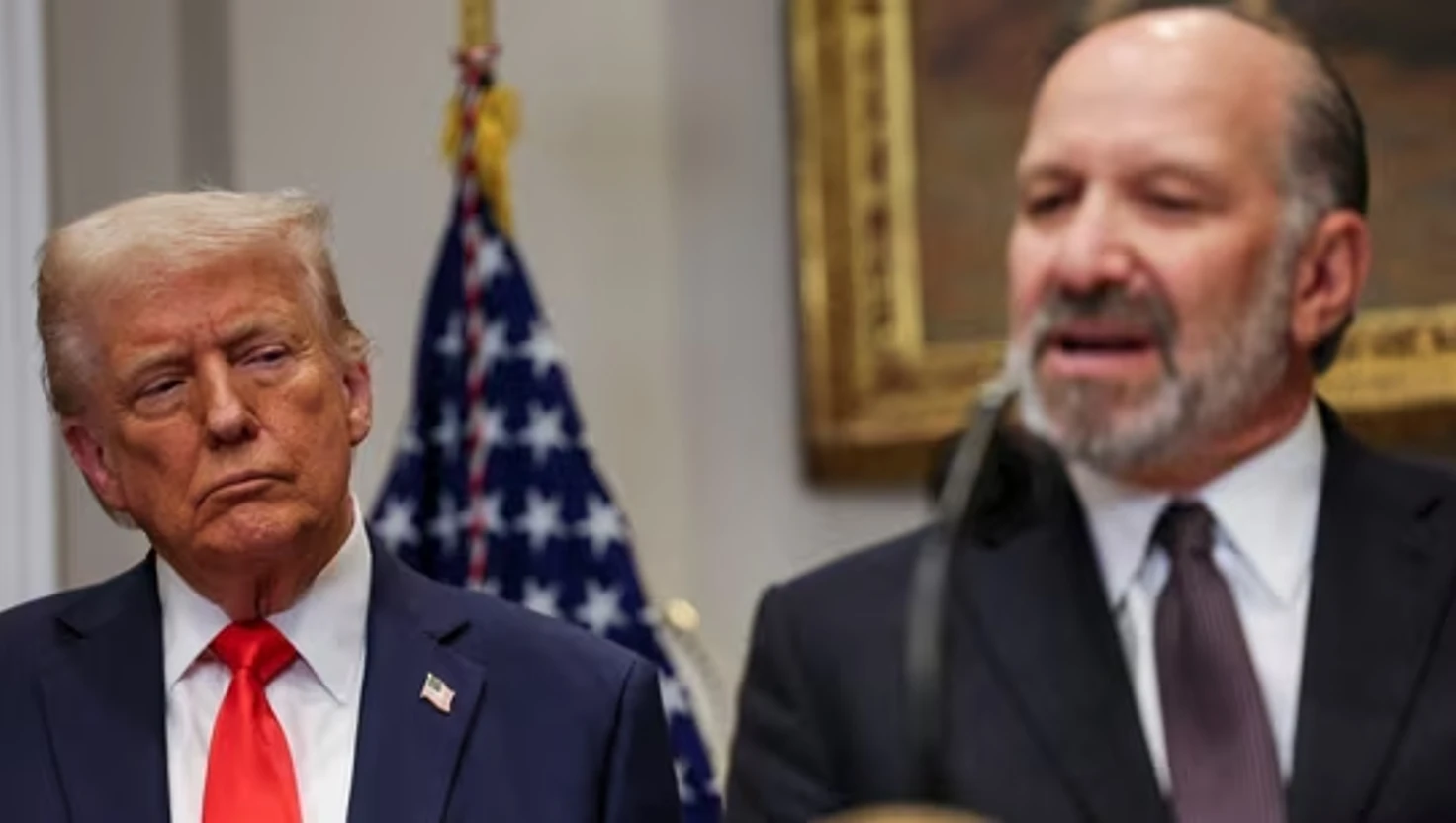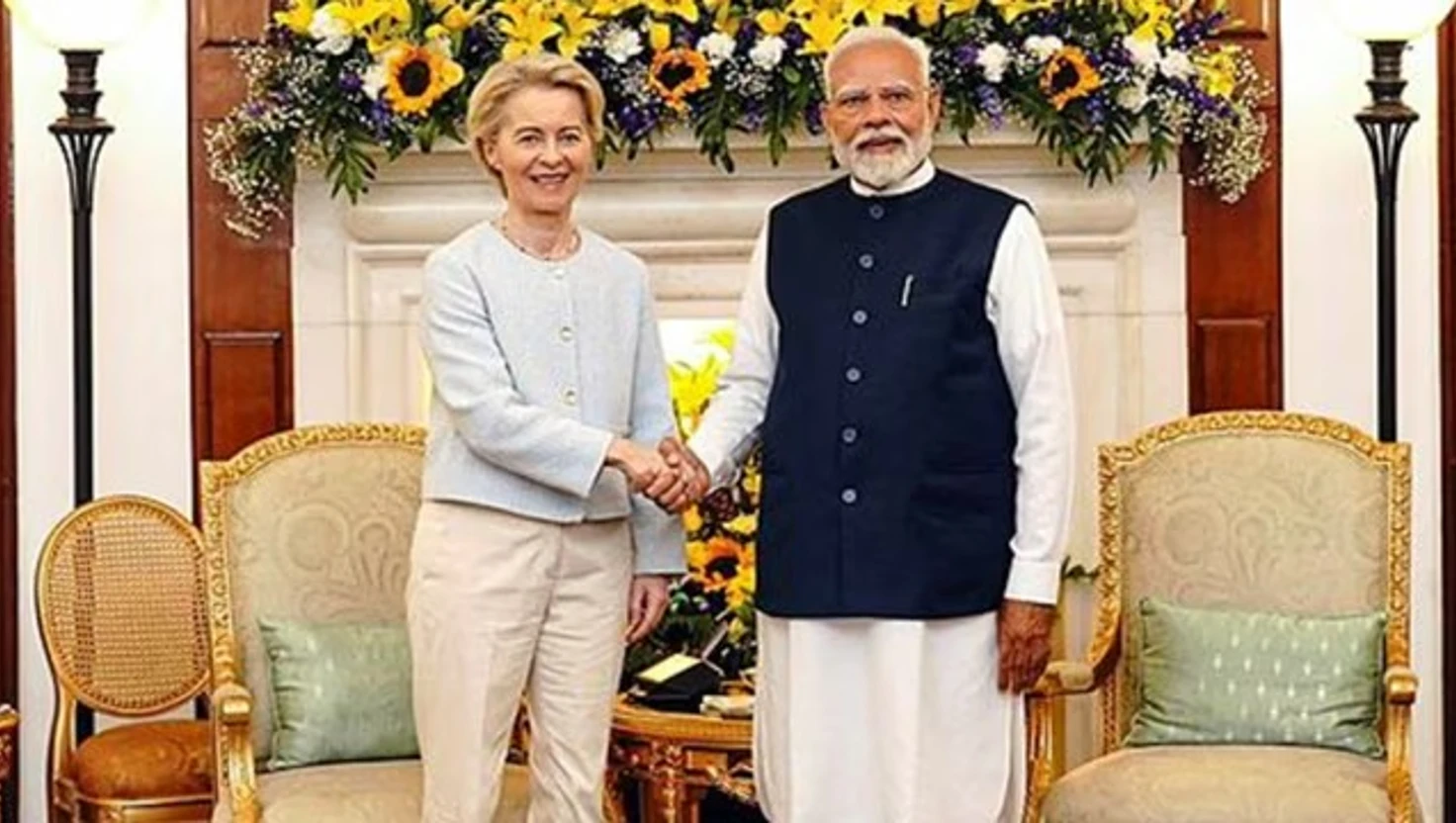"We've Lost India, Russia To Deepest, Darkest China", says Donald Trump

"We've Lost India, Russia To Deepest, Darkest China", says Donald Trump
Donald Trump asserts the US has lost ties with India and Russia to China, criticising New Delhi's energy trade and market openness.
United States President Donald Trump recently expressed concern over America's relationship with India and Russia, suggesting in a social media post that the United States has "lost" both countries to China. Trump made these remarks following a summit attended by Indian Prime Minister Narendra Modi, Russian President Vladimir Putin, and Chinese President Xi Jinping, which highlighted their cooperative efforts on various fronts.
In a post on Truth Social, Trump stated, "It looks like we’ve lost India and Russia to deepest, darkest China. May they have a long and prosperous future together." His comments come amidst a backdrop of increasing tensions regarding trade and energy policies between the United States and India.
In response, a senior White House commerce official emphasised India's need to clarify its geopolitical stance, stating that it must choose sides. This sentiment underlines a deteriorating atmosphere in US-India relations, largely attributed to Trump's tariff policies and India’s ongoing imports of Russian oil.
The Trump administration has imposed a significant tariff on Indian goods, which has drawn criticism from both observers in the US and Indian officials. Many argue that this has driven India closer to Russia and China. Trump’s tariffs include a 25% reciprocal tariff and an additional 25% levy on Indian crude oil imports from Russia, part of a wider assertive trade strategy.
In New Delhi, Foreign Ministry spokesperson Randhir Jaiswal mentioned that the government would not provide a comment on Trump's statements. However, India's Finance Minister Nirmala Sitharaman defended the country’s energy decisions, expressing her discontent with how the US has commented on India’s energy security. She stated, "It’s our decision where we buy from," indicating a stance of independence in trade matters.
As tensions continue, Howard Lutnick, the US Commerce Secretary, criticized India for not opening its markets sufficiently to American exports, urging India to cease purchasing Russian energy and to reconsider its position within the BRICS alliance, which includes Brazil, Russia, India, China, and South Africa. Lutnick suggested that India stands at a geopolitical crossroads, describing it as the "vowel between Russia and China."
Addressing the tariffs, Lutnick predicted that India would ultimately seek negotiations with the US government to adjust the current trade dynamics. Drawing comparisons to Canada, he suggested that New Delhi would approach the Trump administration for reconciliation.
This shifting dynamic comes on the heels of Prime Minister Modi's participation in the Shanghai Cooperation Organisation (SCO) summit in Tianjin, China. Analysts suggest that Modi’s willingness to engage with China and Russia signifies a strategic pivot towards maintaining autonomy, especially given ongoing tensions related to border disputes and trade.
Continuing its pushback against US sentiment, India’s External Affairs Minister S. Jaishankar is scheduled to represent the country in an upcoming virtual BRICS summit convened by Brazilian President Luiz Inácio Lula da Silva. This forum aims to discuss Trump’s trade policies and bolster cooperation among emerging economies.
Experts observe that Trump’s aggressive trade tactics, which include sharp criticisms of India's energy dealings with Russia, may inadvertently encourage closer ties between India, Russia, and China. International relations analysts have highlighted the potential repercussions of such a development, noting that Trump's approach could backfire by pushing India away from alignment with the United States.
Historically, the US has regarded India as a potential counterbalance to China’s expanding influence in Asia. Trump himself had endeavoured to strengthen ties with India during his first term, culminating in high-profile events such as the "Howdy Modi" rally in Houston in 2019. However, recent trade practices and rhetoric have cast a shadow over these efforts.
Overall, Trump's comments reflect a growing frustration with India’s actions, particularly regarding its Russian oil imports and its reluctance to engage in comprehensive market negotiations. As the geopolitical landscape continues to evolve, the coming months are likely to provide clarity on India’s future direction concerning its alliances with major world powers.
In a post on Truth Social, Trump stated, "It looks like we’ve lost India and Russia to deepest, darkest China. May they have a long and prosperous future together." His comments come amidst a backdrop of increasing tensions regarding trade and energy policies between the United States and India.
In response, a senior White House commerce official emphasised India's need to clarify its geopolitical stance, stating that it must choose sides. This sentiment underlines a deteriorating atmosphere in US-India relations, largely attributed to Trump's tariff policies and India’s ongoing imports of Russian oil.
The Trump administration has imposed a significant tariff on Indian goods, which has drawn criticism from both observers in the US and Indian officials. Many argue that this has driven India closer to Russia and China. Trump’s tariffs include a 25% reciprocal tariff and an additional 25% levy on Indian crude oil imports from Russia, part of a wider assertive trade strategy.
In New Delhi, Foreign Ministry spokesperson Randhir Jaiswal mentioned that the government would not provide a comment on Trump's statements. However, India's Finance Minister Nirmala Sitharaman defended the country’s energy decisions, expressing her discontent with how the US has commented on India’s energy security. She stated, "It’s our decision where we buy from," indicating a stance of independence in trade matters.
As tensions continue, Howard Lutnick, the US Commerce Secretary, criticized India for not opening its markets sufficiently to American exports, urging India to cease purchasing Russian energy and to reconsider its position within the BRICS alliance, which includes Brazil, Russia, India, China, and South Africa. Lutnick suggested that India stands at a geopolitical crossroads, describing it as the "vowel between Russia and China."
Addressing the tariffs, Lutnick predicted that India would ultimately seek negotiations with the US government to adjust the current trade dynamics. Drawing comparisons to Canada, he suggested that New Delhi would approach the Trump administration for reconciliation.
This shifting dynamic comes on the heels of Prime Minister Modi's participation in the Shanghai Cooperation Organisation (SCO) summit in Tianjin, China. Analysts suggest that Modi’s willingness to engage with China and Russia signifies a strategic pivot towards maintaining autonomy, especially given ongoing tensions related to border disputes and trade.
Continuing its pushback against US sentiment, India’s External Affairs Minister S. Jaishankar is scheduled to represent the country in an upcoming virtual BRICS summit convened by Brazilian President Luiz Inácio Lula da Silva. This forum aims to discuss Trump’s trade policies and bolster cooperation among emerging economies.
Experts observe that Trump’s aggressive trade tactics, which include sharp criticisms of India's energy dealings with Russia, may inadvertently encourage closer ties between India, Russia, and China. International relations analysts have highlighted the potential repercussions of such a development, noting that Trump's approach could backfire by pushing India away from alignment with the United States.
Historically, the US has regarded India as a potential counterbalance to China’s expanding influence in Asia. Trump himself had endeavoured to strengthen ties with India during his first term, culminating in high-profile events such as the "Howdy Modi" rally in Houston in 2019. However, recent trade practices and rhetoric have cast a shadow over these efforts.
Overall, Trump's comments reflect a growing frustration with India’s actions, particularly regarding its Russian oil imports and its reluctance to engage in comprehensive market negotiations. As the geopolitical landscape continues to evolve, the coming months are likely to provide clarity on India’s future direction concerning its alliances with major world powers.

India Implements New GST Rates on Car Purchases
The Indian government has revised GST rates for cars, aiming to boost affordability and enhance personal mobility.
| 2025-09-05

Apple's Siri Upgrade Could Use Google Gemini AI by 2026
Apple plans to enhance Siri with Google's Gemini AI, a move aimed at improving voice assistant capabilities by 2026, amid rising competition.
| 2025-09-05

Kalyani Priyadarshan Shines as First Female Superhero in Lokah
Kalyani Priyadarshan's remarkable debut in Lokah Chapter 1: Chandra highlights her family's cinematic legacy and reshapes Malayalam cinema.
| 2025-09-05

Asia Cup 2025: India Secures Dominant Victory Over Malaysia
India triumphed over Malaysia 4-1 in the Asia Cup Super 4s, boosting their chances for the final. The team displayed resilience despite an early setback.
| 2025-09-05

EU leaders, Modi discuss early conclusion of FTA, end to war in Ukraine
European Union leaders call on India to assist in resolving the Ukraine conflict while advancing trade discussions with Prime Minister Narendra Modi.
| 2025-09-05




